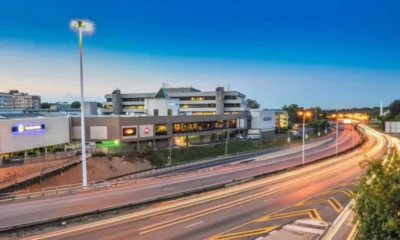Best of Johannesburg
What Really Happens When Your City Cancels a Project Mid-Rollout in South Africa 2025

Coming to a sudden stop: when good plans go bad
Imagine a new water pipeline, a school building, or a transport upgrade in one of South Africa’s cities. Midway through construction, the contract is cancelled. What follows is not merely a delay. For cities like Johannesburg, the decision to kill a project mid-rollout triggers a domino effect of financial losses, service collapse, and eroded trust.
The financial and legal avalanche
When a municipality cancels a contract midway, the consequences ripple through budgets and courtrooms. Money spent on planning, procurement, and partial construction vanishes into thin air. Termination costs mount because of penalties, work already done, remediation expenses, and the depreciation of unused equipment.
Contractors may sue for breach of contract or unlawful repudiation if the municipality has not followed contract termination requirements. This exposes cities to expensive litigation and damage awards. One industry report already notes that in 202,5 project cancellations and funding gaps are heavily impacting South Africa’s construction sector.
The long-term damage is clear: a city with a track record of abandoned projects becomes a riskier partner. Private investors and higher-level funders grow cautious, making it harder to secure future projects or financing.
Service delivery grinds to a halt
The stakes go beyond accounting books. Most cancelled projects tie directly into service delivery, the roads, water systems, hospitals, and schools that communities rely on. For example, delays or cancellations in infrastructure have been cited by government ministers as causing half-finished buildings, idle sites, and wasted public funds.
In Johannesburg, abandoned infrastructure has magnified grievances: crumbling roads, water outages, and uncompleted buildings all fuel local frustration. When a project stalls or never finishes, the intended public benefit disappears. In addition, unfinished sites often turn into safety hazards, attracting illegal activity or creating environmental risks.
Jobs lost, communities hurt
The construction sector is one of the few engines of local employment. When a project is cancelled, the ripple hits many: contractors and subcontractors lose revenue, workers face job losses, and local small businesses miss out on supply contracts. In communities already under pressure, this leads to greater economic strain.
At the same time, residents see broken promises. A new clinic that never opened, a road that ends in a trench, a housing development that stops half-built: all these contribute to a sense that government cannot deliver, and public trust erodes further.
Reputation damage and political fallout
For the city and its leadership, the damage is reputational and political. Frequent project cancellations feed public scepticism about municipal competence and integrity. They open the door to community protests, media scrutiny, and scandal. At the national level, auditors note that municipalities are under “a moment of reckoning” after repeated failures in service delivery and infrastructure.
In Johannesburg, the theme keeps emerging: political instability, budget crisis, rising debt, and infrastructure decay. Cancelled projects are one symptom of a deeper management failure.
Why it keeps happening
The root causes are not a mystery. Weak planning, under-costed budgets, political interference, insufficient feasibility studies, and poor contract management all play a part. Nationally, the failure by municipalities to spend infrastructure grants on time and in full has created a backlog of unfinished work, which further undermines local economies.
In some provinces, the construction pipeline is thinning as approvals drop and cancellations rise. Project viability is compromised when funding is uncertain, timelines slip, and governance is weak.
A fresh angle: the trust economy of infrastructure
What often gets overlooked is the non-financial currency at stake: trust. When a city signs a contract and then walks away, it sends a message to investors, to communities, and to civil society that commitments are negotiable. That message reverberates far beyond the single contract. One stalled project becomes a reference point.
Rebuilding that trust is harder than finishing the infrastructure. It requires transparent communication, accountability when things go wrong, and visibly completed work. Without the latter, the cost is more than just money; it is the credibility of local government.
What residents should ask
If you live in Johannesburg or elsewhere, here are a few questions worth asking:
-
Has the municipality provided a clear reason for cancellation?
-
Were contractors compensated according to the contract terms?
-
What happens next with the site? Will it be repurposed, cleaned up, or completed?
-
How will the promised service (water, roads, housing) still reach the community?
-
Is there oversight or public reporting on major infrastructure projects and their status?
Cancelled projects are more than defunct building sites. They represent broken promises, wasted resources, and a blow to public confidence. In South Africa in 2025, the issue is urgent: the construction pipeline is under strain, municipal finances are fragile, and citizens are losing patience. For cities like Johannesburg and beyond, the message is clear: start strong, stay the course, and deliver, or risk far more than budget overruns.
Also read: Prepaid Power Panic: The Real Amount of Electricity R200 Buys You in 2025
Follow Joburg ETC on Facebook, Twitter, TikT
For more News in Johannesburg, visit joburgetc.com
Featured Image: Shutterstock


























